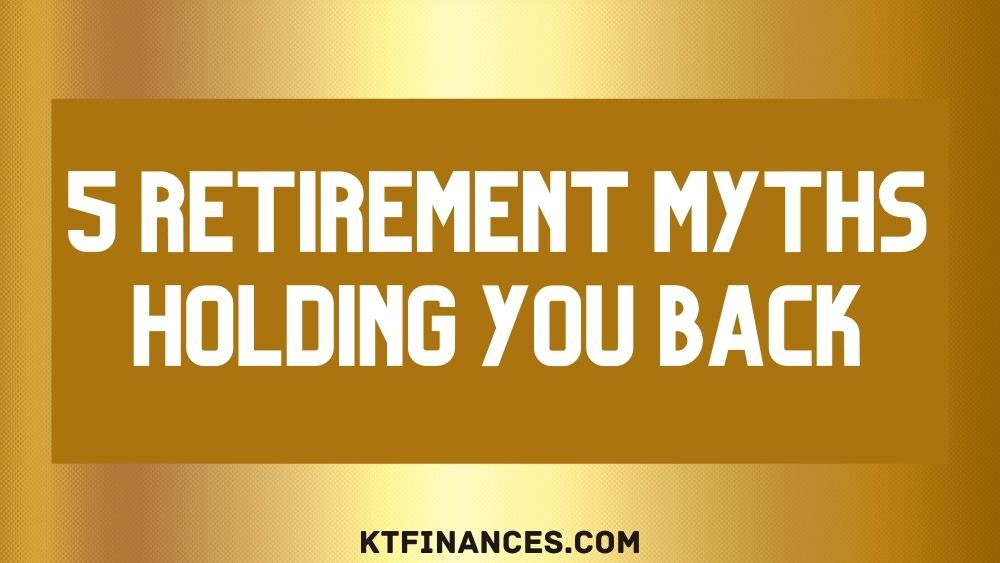Retirement has changed dramatically in the last 20 or 30 years. The days of using social security and a guaranteed pension from working a single job are gone. Social security pays, on average, about $700 a month, woefully short of cost of living, and very few jobs pay pensions like they did in the past. With uncertainty abounding, outdated advice and an ever-changing target for retirement age, you may have some preconceived notions about retirement that are little more than myths.
To that end, we’ve brought together some of the most common myths about retirement that could be holding your plans back. If you find yourself holding some of these beliefs, a few small corrections could set you back on-course for a fruitful, healthy retirement.
You’re too young to worry about retirement
Interest rates in savings accounts and CDs are not what they were thirty years ago, but investing is still a good bet for growing your money. The sooner you start investing, the better, and the earlier you start contributing to a 401k or other employer-based savings plan, the more you’ll earn on the back end.
For instance, if you start contributing to an IRA in your twenties – as unfun as planning for retirement seems in your party years – you can nearly triple your investment if you’d waited until your mid-thirties. It’s never too early to start at least investing money for retirement; even if you end up with no financial concerns at all, the sooner you start investing extra cash flow, the more beneficial it will be. Starting your savings plan in your twenties before you have kids and a mortgage gives you A) more time for it to compound interest and B) more money to invest in general, since you don’t have family or debt detracting from your earnings.
You should stop investing in stocks in retirement
There’s often a fear that with the volatility of stocks that they should be left to younger folks. While nobody is suggesting you dump all your money into highly unstable investments, stocks are still the best way to grow your cash. With dependable growth and low risk, some stocks can be a critical investment for supplementing your savings in retirement. It’s inadvisable to ignore the stock market, just because you’re a retiree or on the cusp of retirement.
You’re too old to start saving
Just like the “too young” excuse, this is just nonsense. Even some savings is better than none at all, and if you take full advantage of your employer’s matching, then 15-20% of your income saved each check can get you back in the game quickly. Additionally, some companies offer “catch-up” contributing, which is usually for 50 year olds or older employees. This allows you to pay into it based on years you missed by not being employed. If you aggressively take advantage of employer matching and catch-up options, you can turn a modest investment of $5000 a year into over $200,000 within 15 years’ time, which is nothing to sneeze at.
Government programs will keep me covered
It should have already been established that social security will in no way take care of you in retirement, but if you’re thinking Medicare will cover you, that’s another surprise in store. First of all, Medicare doesn’t kick in for most people until 65, and if you want to retire with health coverage before that, it’s not an option. Secondly, Medicare doesn’t cap your out-of-pocket expenses, so you could be still paying for medical costs until you’re 100 years old.
A more sound investment would be to talk with an insurance expert about types of long-term medical insurance you can invest in while you’re young and keep into your retirement. Having additional medical will save you a lot of hoops, referrals and headaches later on in life, and can be supplemented by Medicare quite nicely.
No job, no taxes!
Woof, this couldn’t be further from the truth. You’re still going to be paying taxes in retirement even if you’re not drawing a regular paycheck. You’ll still be getting paid from retirement plans and some of them are taxable. Additionally, the beauty of being taxed through your paychecks is that someone else is doing all the math for you. In retirement, you’ll need a solid tax advisor and preparer to do your taxes for you, both to get your maximum benefit but also to make sure you avoid an irritating and costly audit. You will want to have a financial planner and an actual tax accountant in your corner before you retire to help make sense of taxes post-work.
Save now, relax later
There’s nothing more beneficial for your retirement than to start saving money now. Naturally the earlier you start the better off you’ll be, but it’s never too late to start planning. An extra $500 in a sound retirement plan now can turn into tens of thousands after 15 or 20 years, and can make the difference in your retirement strategy.
Start saving, start planning and never consider that you’ve “got enough” money or insurance to keep you covered. Consult with financial planners, insurance advisors and tax experts and get your retirement system in place as early as possible.
It may not be the most fun thing in the world to plan for, but it will be worth it when you’re relaxing on a beach somewhere instead of working into your 70s.

